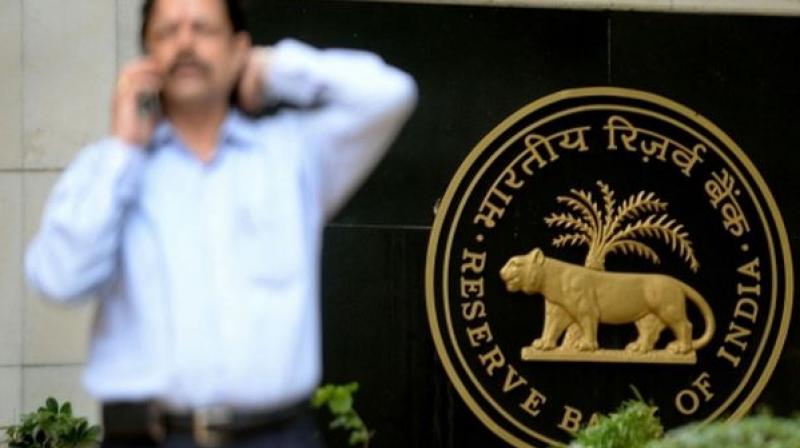Potential successors in race to replace Rajan as RBI chief

Investors in India are on the edge as local media report that Prime Minister Narendra Modi could select the new governor of the Reserve Bank of India (RBI), to replace "rock star" incumbent Raghuram Rajan, as early as this week.
In making his selection, Modi will need to juggle competing demands from within his own party, the economy's need for more stimulus and investors' demands for an independent thinker.
TV channels on Monday said Modi could name his policy adviser, Arvind Panagariya, as the next governor, citing unnamed government sources.
Reuters had last month reported the government had short-listed four candidates: RBI Deputy Governor Urjit Patel, former deputy governors Rakesh Mohan and Subir Gokarn and State Bank of India Chair Arundhati Bhattacharya.
Here is some background on the candidates seen as potential successors to Rajan at the RBI:
Arvind Panagariya
Panagariya, 63, is currently the vice chairman of NITI (National Institution for Transforming India) Aayog, a policy commission. Headed by the Prime Minister, it's a substitute for the previous Soviet-style Planning Commission and is designed to function as a think-tank and policy forum.
A free-market economist, he is an advocate of growth-supportive policies. He was one of the most vocal supporters of Modi's 'Gujarat model of growth'. He has authored several books, including "Why Growth Matters", which examines how market-driven economic growth is vital to reduce poverty.
The former chief economist of the Asian Development Bank was one of the architects of the labor reforms in the Western Indian state of Rajasthan that made it easier for companies to hire and fire workers.
In the past, Panagariya supported loosening of fiscal deficit targets to create space for more capital spending. His specialty is on trade, and as the country's negotiator at Group of 20 gatherings, he has criticized China's massive yuan devaluation and has also argued that India's relatively less-weaker currency is hurting its exports.
In terms of monetary policy, Panagariya, with a doctorate in economics from Princeton University, has been a proponent of setting a higher consumer inflation target than 4 percent, which at present, is set between 2 percent and 6 percent. That could raise expectations that he would be more willing to ease policy.
Urjit Patel
One of the RBI's four deputy governors, Patel, 52, was reappointed in January for another three years. He has run the central bank's monetary policy department since 2013 and is viewed as a leading contender for the governor's job.
Seen as a close lieutenant to Rajan, Patel headed a committee that introduced landmark changes including a switch to inflation-targeting and adopting consumer prices as the new benchmark instead of wholesale prices. The changes he helped drive are considered to be among the most significant monetary policy reforms since India opened up its economy in 1991.
Patel, whose remit at the RBI included managing money markets, has faced criticism from market participants however, with some traders and bankers complaining that he kept liquidity tight at a time when the RBI was lowering rates, starving banks of cash.
Patel, according to a Nomura note, is considered a 'hawk' on his monetary policy stance.
Rakesh Mohan
Mohan, 68, had two stints as a deputy governor of the RBI. He also served as secretary at the department of economic affairs at the Indian government's finance ministry and held positions at the International Monetary Fund (IMF).
Mohan was in charge of monetary policy, financial markets, economic research and statistics at the RBI.
Nomura pegs Mohan as neutral in his monetary policy stance. The brokerage firm noted that in a working paper that he co-authored last year Mohan stated that achieving 8-9 percent economic growth would need the maintenance of appropriate rates, a realistic and competitive real exchange rate and a focused attention on removing land and labor related impediments.
Subir Gokarn
Gokarn, 56, also a former deputy RBI governor, currently serves as an executive director at the IMF. He looked after monetary policy during his three years at the central bank until the end of 2012.
During his tenure as deputy governor, Gokarn zoned in on the lesser noticed higher protein-consumption driven inflation, which was a reason for the wholesale price inflation (WPI) index pushing higher at the time. He also laid greater stress on core WPI, essentially demand-led inflation.
Nomura said it views Gokarn as "balanced in his views," and as having a neutral stance on monetary policy matters.
Arundhati Bhattacharya
A high-profile banker, Bhattacharya has been at the helm of India's largest lender - State Bank of India - since late 2013 and has earned praise from investors for her management of the bank's mountain of bad debt. She was named in the Forbes list of the world's 100 most powerful women.
Bhattacharya, 60, whose term as the chair at State Bank of India ends later this year, is perceived as another front-runner in the race.
She was reportedly among the candidates interviewed to head India's capital markets regulator before the government made a last-minute decision to extend the term of the incumbent. She has spent her entire career in the banking sector and never held any policy roles.
Given "her bias toward the banking sector," Nomura said it sees Bhattacharya as a "more dovish candidate."

